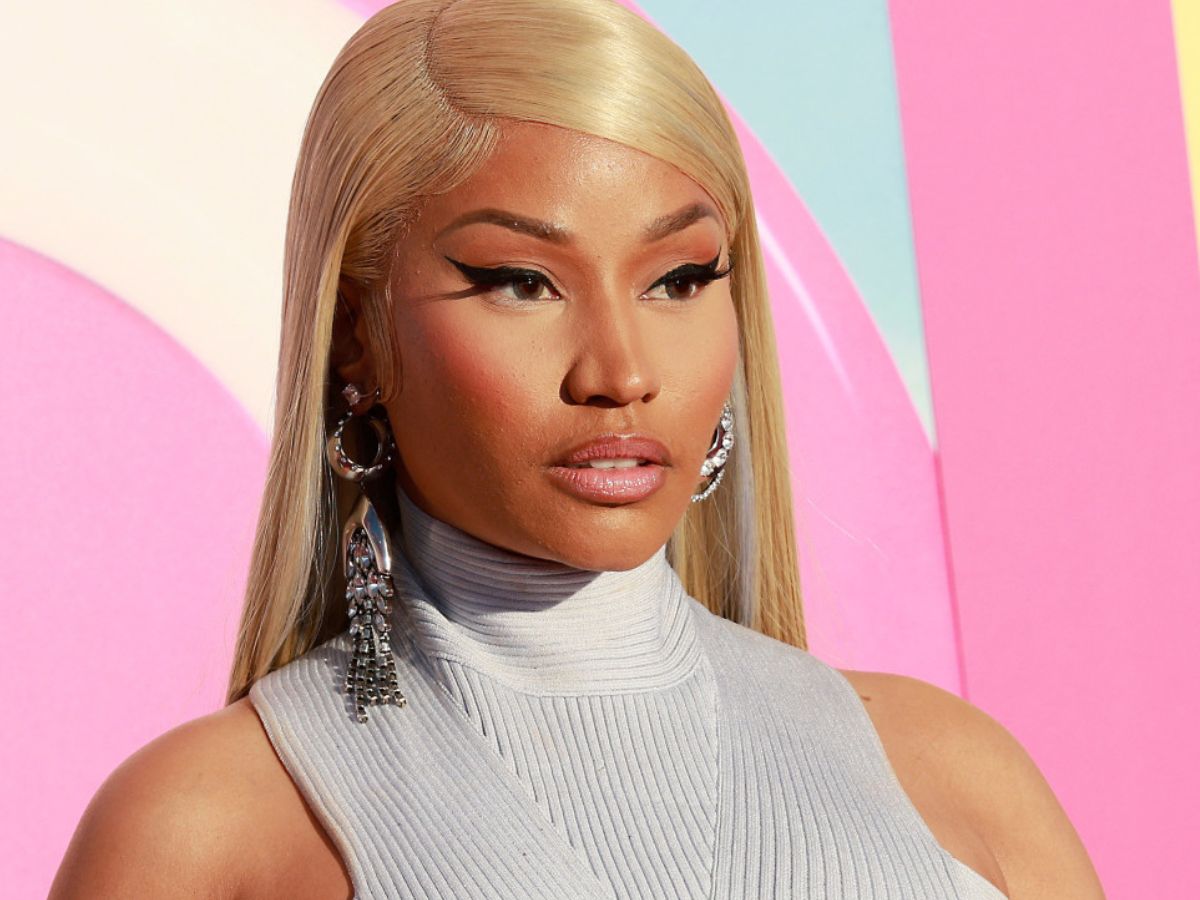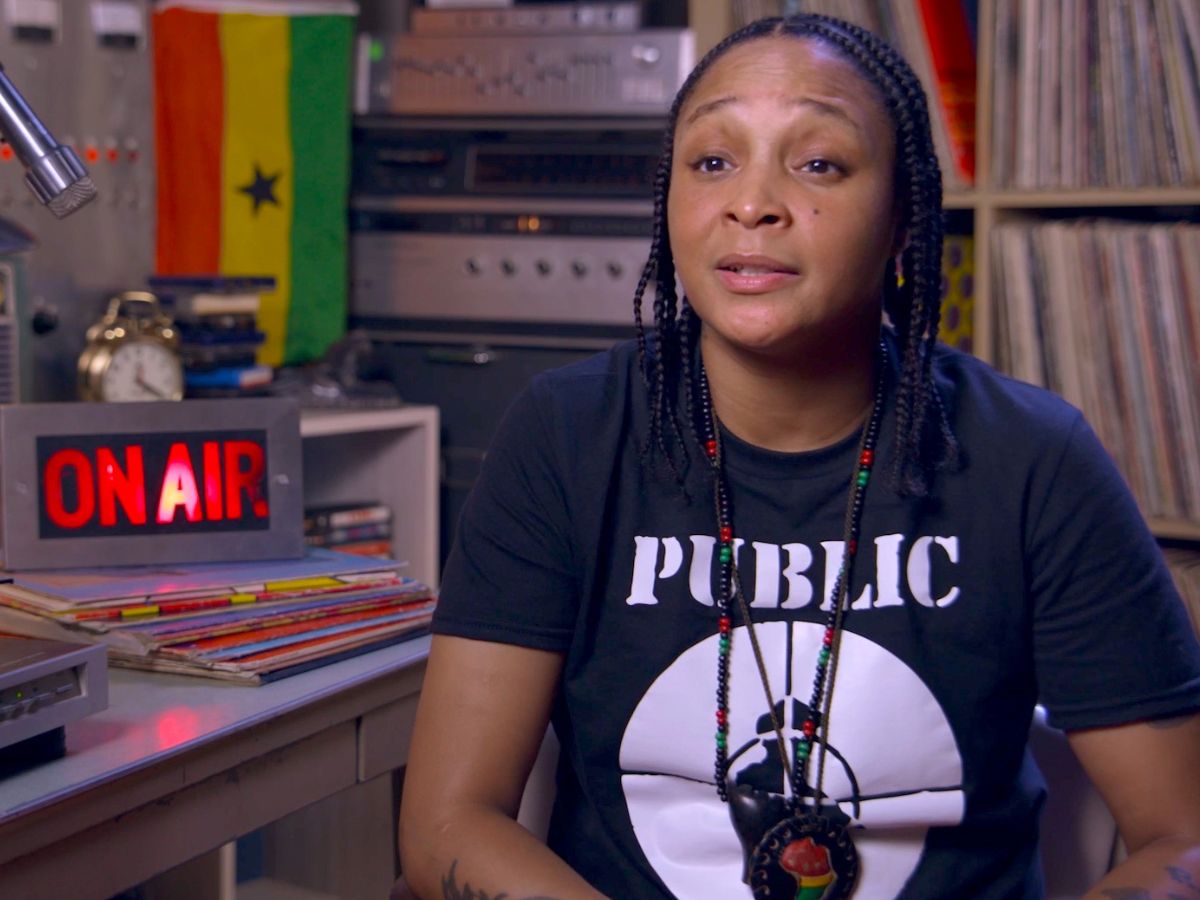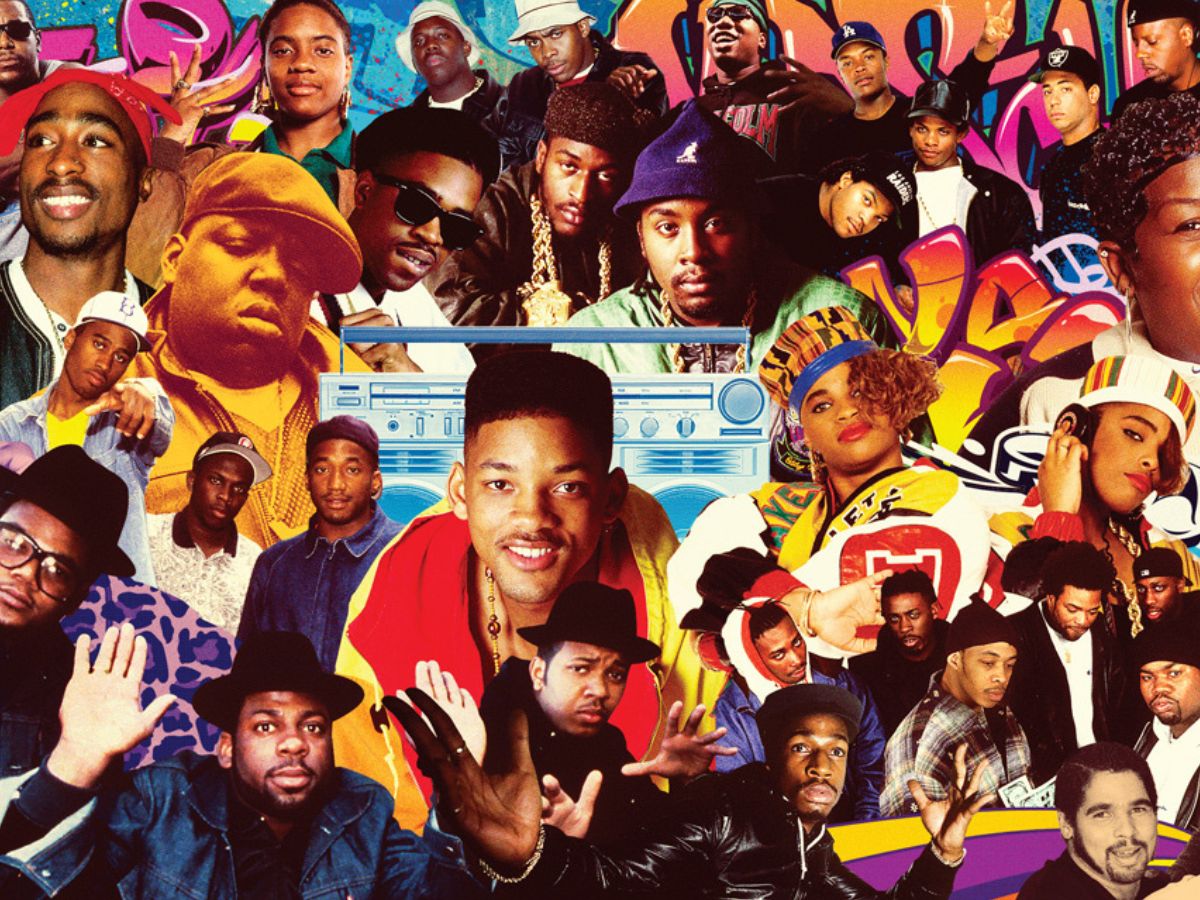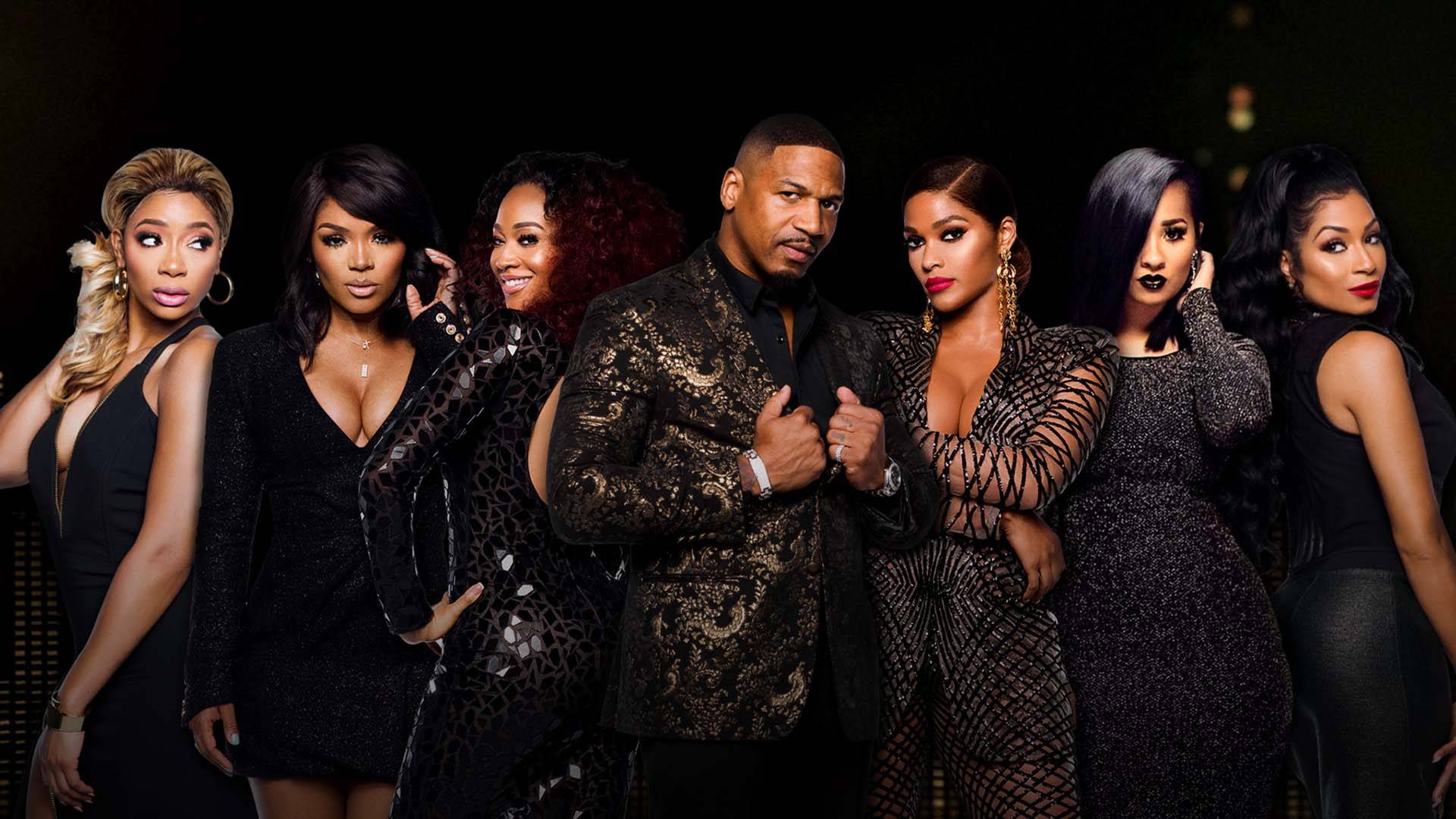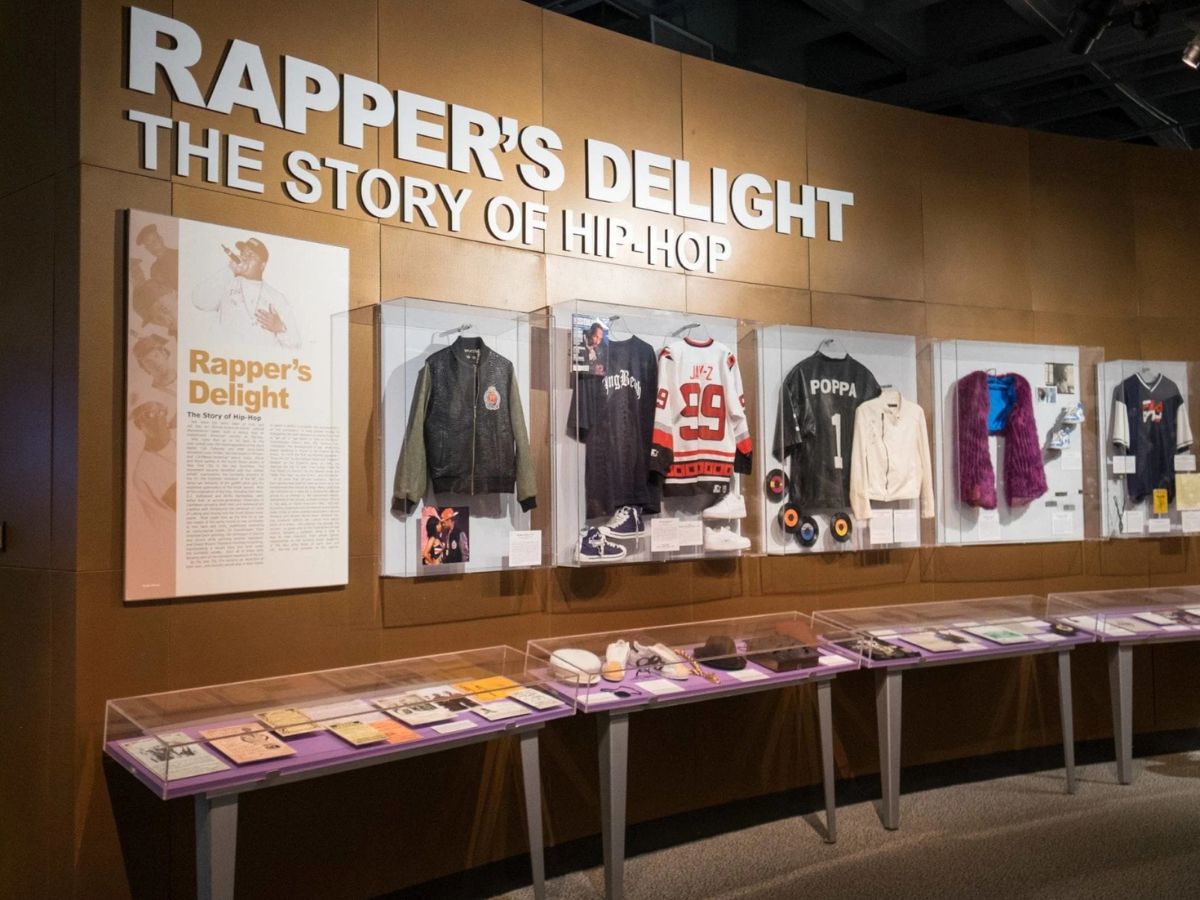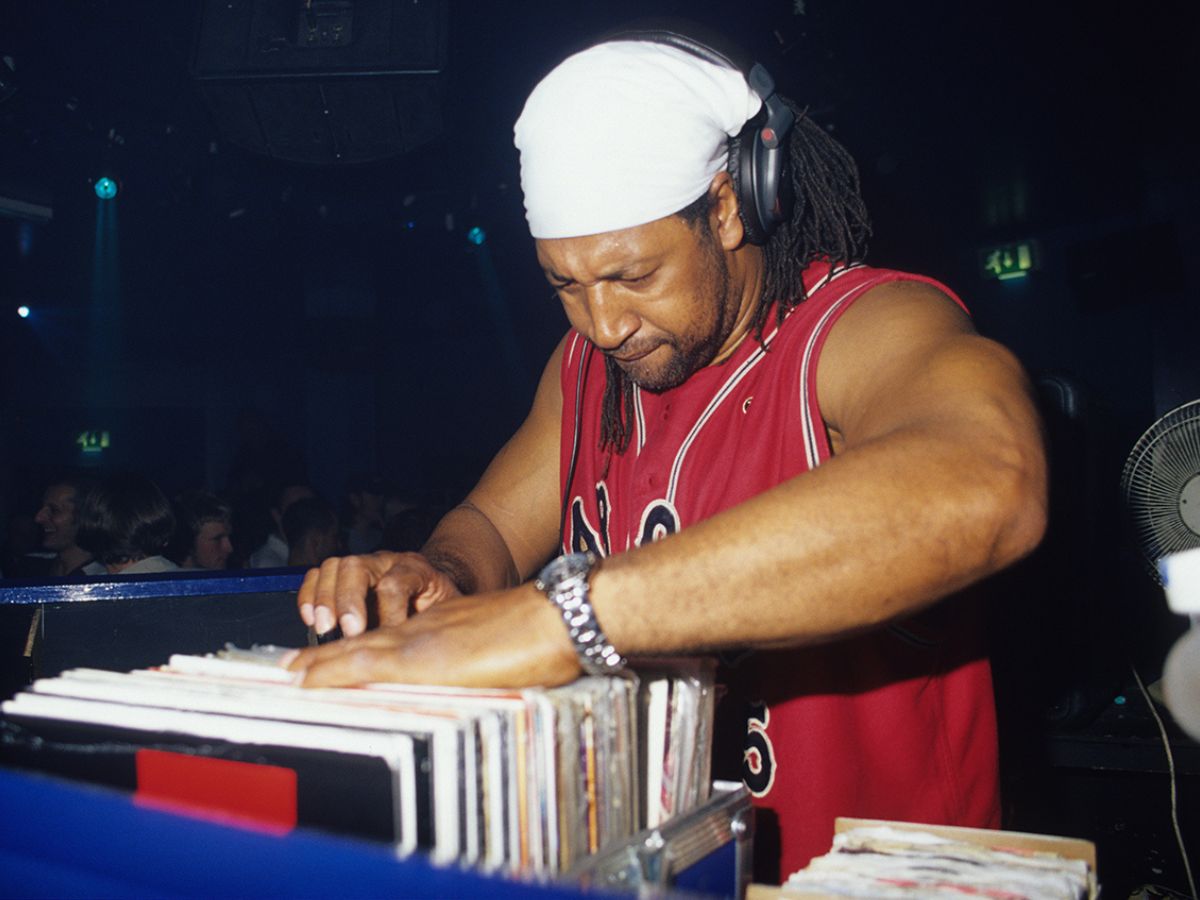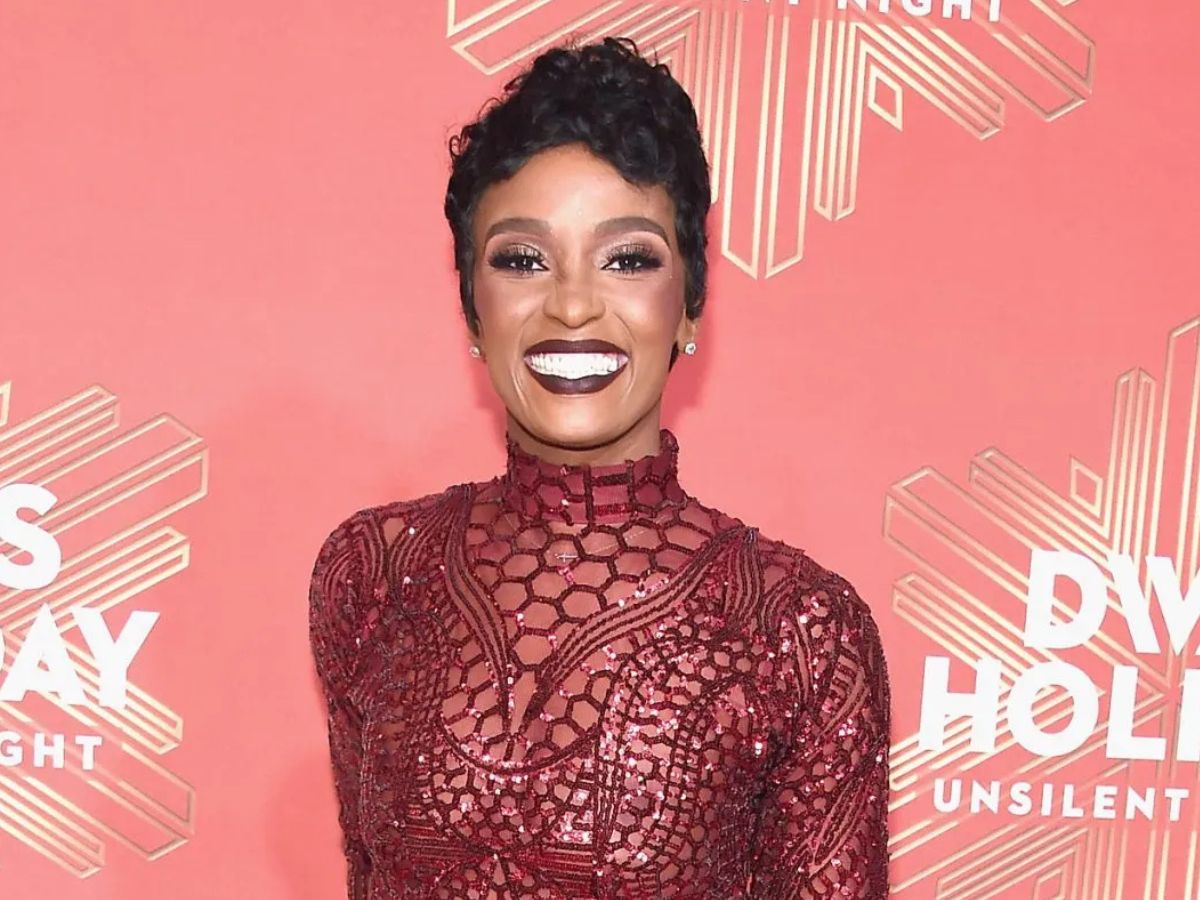Home>Genres>Hip Hop>Who Was The First Hip Hop Artist To Win A Grammy
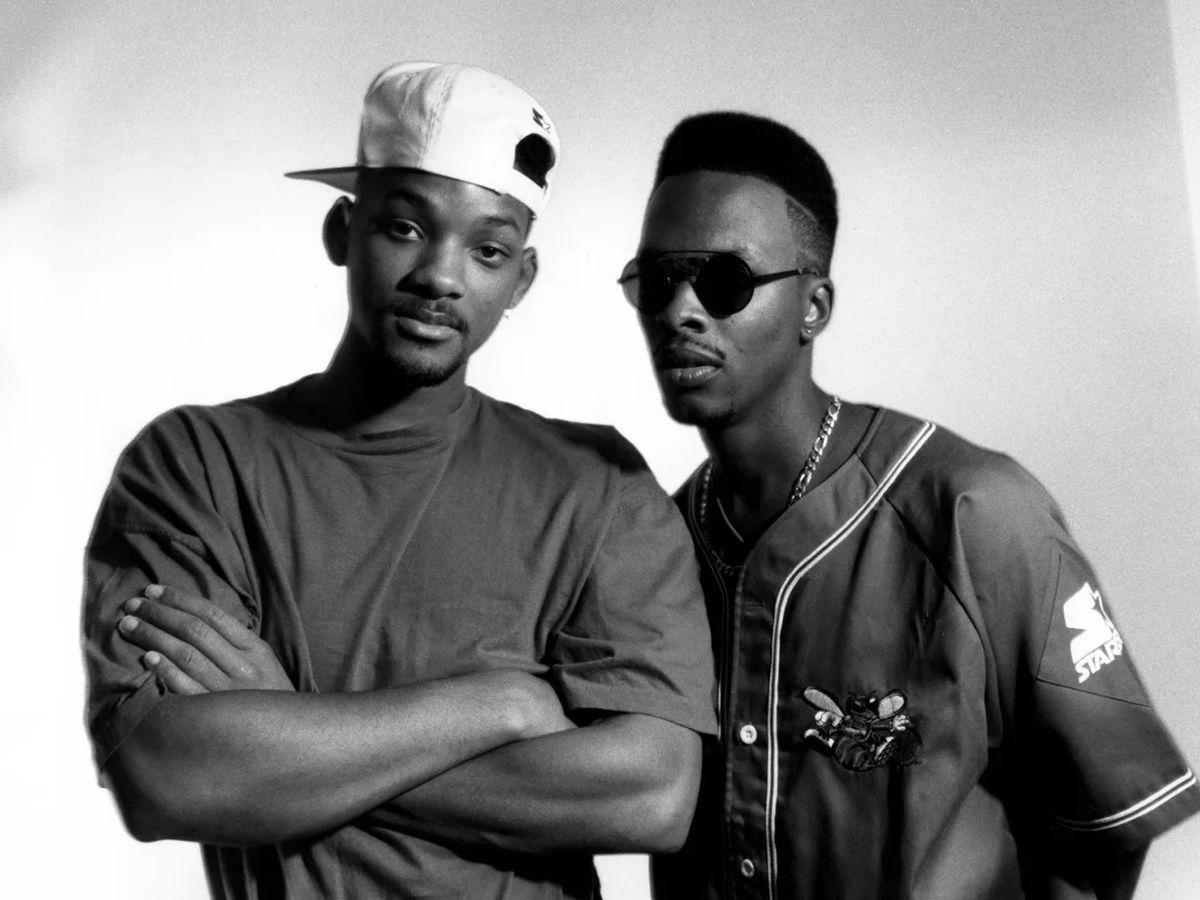

Hip Hop
Who Was The First Hip Hop Artist To Win A Grammy
Modified: March 4, 2024
Discover the groundbreaking moment in music history as we delve into who became the first hip hop artist to secure a Grammy award, igniting a new era in the genre.
(Many of the links in this article redirect to a specific reviewed product. Your purchase of these products through affiliate links helps to generate commission for AudioLover.com, at no extra cost. Learn more)
Table of Contents
Introduction
Hip hop, a genre born out of the Bronx in the 1970s, has become a worldwide phenomenon and a dominant force in the music industry. Known for its rhythmic beats, poetic lyrics, and street culture influences, hip hop has captivated audiences of all ages and backgrounds.
One of the ultimate achievements for any musician is to receive a Grammy Award, a prestigious recognition from the Recording Academy. The Grammy Awards honor excellence in the recording industry and have become a symbol of musical accomplishment. However, for many years, hip hop was overlooked and underrepresented at the Grammys.
This article delves into the history of hip hop at the Grammy Awards, exploring who was the first hip hop artist to win a Grammy and the impact it had on the genre’s recognition and acceptance in the mainstream music world.
Join us as we uncover the origins of hip hop, the significance of the Grammy Awards, and the breakthrough moment when a hip hop artist finally received the industry’s highest honor.
The Origins of Hip Hop
Hip hop emerged in the streets of the Bronx, New York City, during the 1970s. It was a cultural movement that brought together elements of music, dance, art, and fashion, ultimately evolving into a genre of its own. Hip hop provided a platform for expression, allowing individuals to tell their stories through beats, rhymes, and innovative dance moves.
The roots of hip hop can be traced back to the parties and gatherings where DJs would mix and blend different genres of music, such as funk, soul, and disco, to create a unique sound that encouraged people to dance and let loose.
As hip hop grew in popularity, it also became a channel for the marginalized voices of the inner-city communities. Rappers started using their lyrics to comment on social issues, portray their experiences, and shed light on the realities of urban life. This aspect of hip hop, known as “conscious rap,” became a powerful tool for storytelling and raising awareness.
Furthermore, hip hop culture encompassed other elements such as graffiti art and breakdancing, providing a vibrant and dynamic backdrop for self-expression. The movement gave a voice to the youth, serving as an outlet for creativity and a means of cultural empowerment.
As the genre expanded, hip hop began to gain traction outside of New York City and spread across the country. It became a powerful force for change, challenging societal norms and providing a platform for underrepresented communities to be heard.
The rise of hip hop sparked a revolution in music, transforming the industry and laying the foundation for the global phenomenon it is today. From the humble beginnings in the Bronx, hip hop has become a dominant force, influencing popular culture, fashion trends, and even political movements.
Now that we have explored the origins of hip hop, let’s dive into the Grammy Awards and their significance in recognizing musical excellence.
The Grammy Awards
The Grammy Awards, presented annually by the Recording Academy, are widely regarded as the most prestigious accolades in the music industry. The awards recognize outstanding achievements in various categories, including Best Album, Best Song, and Best New Artist.
Established in 1958, the Grammys have become a symbol of excellence and accomplishment for musicians around the world. Winning a Grammy is a career-defining moment and often leads to increased visibility, sales, and critical acclaim.
The Grammy Awards ceremony is a star-studded event that brings together the biggest names in the music industry. Performances by renowned artists and memorable collaborations make it a highly anticipated and celebrated spectacle.
However, throughout its history, the Grammy Awards have faced criticism for their lack of diversity and representation. In particular, the hip hop genre has historically been underrepresented and overlooked in major categories.
This underrepresentation sparked controversy and debate, as hip hop emerged as a dominant force in popular culture. Many felt that the Grammy Awards did not accurately reflect the impact and influence of hip hop on the music industry.
Despite the challenges faced by hip hop artists at the Grammy Awards, the genre’s artistic and cultural significance could not be denied. Hip hop continued to thrive and captivate audiences worldwide, exerting its influence beyond just the music itself.
With this context in mind, we now turn our attention to the first hip hop artist nominated for a Grammy and the groundbreaking moment when a hip hop artist finally claimed the prestigious award.
The First Hip Hop Artist Nominee
After years of being overlooked, the influence and impact of hip hop in the music industry finally started to be recognized by the Recording Academy. In 1989, the first hip hop artist was nominated for a Grammy award.
The honor of being the first hip hop artist nominee went to rap group, Jazzy Jeff & The Fresh Prince, consisting of DJ Jazzy Jeff and rapper Will Smith. They received a nomination in the Best Rap Performance category for their hit single, “Parents Just Don’t Understand.”
This nomination marked a significant milestone for hip hop, as it signaled the genre’s official recognition by the Recording Academy. Jazzy Jeff & The Fresh Prince brought a fresh and lighthearted approach to rap music, introducing it to a wider audience outside of the traditional urban demographic.
Despite being pioneers in the genre, Jazzy Jeff & The Fresh Prince faced skepticism and resistance from the music industry, with many considering rap music to be a passing fad. However, their Grammy nomination showed that hip hop was here to stay and demanded to be taken seriously as a legitimate form of artistic expression.
Although Jazzy Jeff & The Fresh Prince did not win the Grammy that year, their nomination paved the way for future hip hop artists to receive recognition and left an indelible mark on the music industry.
This groundbreaking nomination served as a turning point for hip hop at the Grammy Awards, opening the door for artists to be acknowledged for their contributions and achievements within the genre.
Now, let’s delve into the moment when a hip hop artist finally won a Grammy, solidifying the genre’s place in music history.
The First Hip Hop Artist to Win a Grammy
The wait for a hip hop artist to win a Grammy seemed interminable, but in 1989, the momentous occasion finally arrived. It was a landmark year for the genre as DJ Jazzy Jeff and rapper Will Smith, known as Jazzy Jeff & The Fresh Prince, made history by becoming the first hip hop artists to win a Grammy.
Their breakthrough came with the award for Best Rap Performance, which they received for their iconic hit single “Parents Just Don’t Understand.” Winning this Grammy solidified hip hop’s place as a legitimate and influential genre within the music industry.
“Parents Just Don’t Understand” was a catchy and relatable song that spoke to the experiences of teenagers and their struggles with parental misunderstandings. It blended humor, storytelling, and addictive beats, capturing the attention of both mainstream listeners and hip hop enthusiasts.
The significance of Jazzy Jeff & The Fresh Prince’s victory at the Grammy Awards cannot be overstated. It not only validated the artistic merit of hip hop but also paved the way for future generations of hip hop artists to receive recognition and acceptance.
Following their win, other hip hop artists started to receive nominations and accolades at the Grammy Awards, gradually eroding the barriers that had previously hindered the genre’s recognition. The cultural impact and commercial success of hip hop could no longer be ignored by the music industry.
The triumph of Jazzy Jeff & The Fresh Prince at the Grammy Awards set the stage for a new era, propelling hip hop into the mainstream and solidifying its influence on popular culture. The win not only celebrated the achievements of the duo but also signified a victory for hip hop as a whole.
Since that historic moment, numerous hip hop artists have gone on to receive Grammy recognition, with rap albums and singles frequently competing for some of the most coveted categories. The boundaries and prejudices that once limited hip hop’s reach have continued to crumble, allowing the genre to thrive and evolve.
The first hip hop artist to win a Grammy was a groundbreaking achievement that shattered barriers and marked a pivotal moment in music history. It not only brought recognition to Jazzy Jeff & The Fresh Prince but also opened doors for countless talented hip hop artists to be acknowledged for their contributions and achievements.
The impact of Jazzy Jeff & The Fresh Prince’s win continues to reverberate throughout the music industry, solidifying hip hop’s place as a vital and influential genre that has shaped the landscape of modern music.
Impact and Legacy
The first hip hop artist to win a Grammy, Jazzy Jeff & The Fresh Prince, paved the way for the genre’s recognition and acceptance in the mainstream music world. Their victory had a profound impact on the music industry and left a lasting legacy that continues to shape hip hop to this day.
One of the immediate effects of their win was an increased visibility and respect for hip hop within the industry. The Grammy recognition for Jazzy Jeff & The Fresh Prince helped to break down barriers and challenge preconceived notions about rap music. It demonstrated that hip hop could be both successful commercially and artistically significant.
Their win also opened doors for other hip hop artists to be acknowledged at the Grammys. In subsequent years, more rap albums and songs received nominations and awards, solidifying the genre’s place in the prestigious ceremony. Today, hip hop is one of the most celebrated and influential genres at the Grammy Awards.
The victory of Jazzy Jeff & The Fresh Prince also had a transformative effect on popular culture. It brought hip hop into the mainstream consciousness, introducing the genre to a wider audience and breaking down cultural barriers. Hip hop became a global phenomenon, influencing not only music but also fashion, art, and even language.
The impact of their win extended beyond just the music industry. It provided a platform for diverse voices and stories to be heard. Hip hop became a powerful vehicle for social commentary, addressing issues such as racism, social inequality, and systemic injustice. The genre became a voice for those who had been marginalized, shining a light on their experiences and struggles.
Furthermore, Jazzy Jeff & The Fresh Prince’s win encouraged aspiring hip hop artists to pursue their dreams and believe in the power of their art. It proved that talent and dedication could overcome the barriers and challenges faced by the genre.
The legacy of Jazzy Jeff & The Fresh Prince’s victory is still felt today. Hip hop has become a global phenomenon, evolving and adapting with each generation of artists. It continues to push boundaries and challenge societal norms, remaining a powerful force for cultural expression and social change.
Their win symbolizes a turning point in the history of hip hop, marking the moment when the genre’s artistic and cultural significance was officially recognized and praised. Jazzy Jeff & The Fresh Prince’s victory will always be remembered as a landmark achievement that opened doors and paved the way for future generations of hip hop artists to receive the recognition they deserve.
Conclusion
Hip hop’s journey from the streets of the Bronx to the Grammy stage has been a remarkable one. The genre’s recognition and acceptance at the Grammy Awards were a long time coming, but it finally happened with the groundbreaking win of Jazzy Jeff & The Fresh Prince.
Their victory was a pivotal moment in music history, marking the first time a hip hop artist received a Grammy. It shattered barriers and opened doors for future generations of hip hop artists to be acknowledged for their contributions and achievements.
Since then, hip hop has continued to thrive, becoming one of the most influential and dominant genres in the music industry. The impact of Jazzy Jeff & The Fresh Prince’s win extended beyond the Grammy stage, transforming popular culture and providing a platform for a diverse range of voices to be heard.
Today, hip hop artists are celebrated and honored at the Grammy Awards, with rap albums and songs frequently receiving nominations and awards in various categories. The genre’s influence has expanded beyond just music, influencing fashion, art, and social movements.
The legacy of Jazzy Jeff & The Fresh Prince’s win is undeniable. It proved that hip hop could be both commercially successful and artistically significant. It inspired aspiring artists to pursue their dreams and believe in the power of their own voices.
As we reflect on the journey of hip hop at the Grammy Awards, it is clear that Jazzy Jeff & The Fresh Prince’s victory was a turning point. Hip hop has become a cultural force, challenging norms and influencing generations of artists and listeners around the world.
We can look back at their win with pride and appreciation for how far hip hop has come. The genre’s recognition at the Grammy Awards continues to evolve, with artists pushing boundaries and creating groundbreaking work.
The first hip hop artist to win a Grammy may have been Jazzy Jeff & The Fresh Prince, but their triumph has paved the way for countless others to follow in their footsteps. Hip hop’s journey in the industry is far from over, and it is exciting to see how the genre will continue to shape the landscape of music in the years to come.


